Groundbreaking Roots
A common refrain from farmers and gardeners who are just starting out is that their soil is hurting. Either it drains too fast or it doesn’t drain at all. Either nothing grows or the land is one mass of lawn or it is overgrown with dense, thorny blackberries. Perhaps neighbors have been using the land to dump all measure of trash and old building supplies. Or all of the above. Once the building supplies are cleared out and the unwanted plants cut down, what’s next?
Some people would plough, rototill, cultivate, and/or disc the soil at this point, attempting to disturb the roots of the undesired plants. I am not enough of an English or Agronomy major to differentiate all those verbs, but they all involve some form of deep digging. If you farm organically, you can dig some compost into the soil at this time to improve the overall fertility.
Some people eschew the disruption to the soil involved in digging deeply and prefer to sheet mulch. They lay large sheets of cardboard flat over the bed space, overlapping all edges, and leaving no holes. Layers of biomass are then added atop the cardboard. Finally a layer of compost is added, followed by a layer of mulch. This method has the added advantage of preserving the life in the soil – the insects, worms, spiders, bacteria, and the fungi that give the soil structure and fertility. It has the added disadvantage of being labor intensive. Which is why some folks make a permablitz party of it, inviting their friends and neighbors to help.
Needless to say, there are endless variations on how to get your soil in shape for planting. But both methods mentioned above involve the application of compost. Compost is partially decomposed organic matter. It is nature’s way of refashioning leaves and other plant debris that have fallen to the ground, into rich soil. When humans compost, we add vegetable scraps, grass clippings, wood chips, coffee grounds, leftovers-gone-bad, and all manner of human-altered organic matter. Adding compost to the soil each planting season adds fertility, promotes soil microbes that aid plant growth, helps the soil retain moisture, extends the growing season, and neutralizes extreme soil PH. No wonder some call compost “Black Gold”.
When you are starting a farm or garden and don’t have any compost at the ready, you’ll need to go to the compost store. If you are planting a large area, you’ll need to go to a large compost store. Some municipalities divert portions of their community’s waste stream to create compost and provide it to the public for free. Massachusetts, Connecticut and Vermont, as well as Seattle, San Francisco and Portland, have all banned large institutions from sending their food waste to a landfill. A few years ago, I visited San Francisco and discovered curbside collection of food scraps. I felt so virtuous, when I put my food waste in the compostables bin. And who turns this raw material into Black Gold? That’s where the Compost Company and others like it come in.
I spoke with Ed Wansing at the Compost Company, in Ashland City, Tennessee. He launched into a description of the various blends he produces. His premium screened blend includes wood chips, leaves, tobacco-growing waste, and cafeteria waste. The compost mulch has the same ingredients as the premium screened blend, but twice as many wood chips. Ed adds QuikSoil, an organic decomposition accelerator, to hasten the process. Even so, on average, it takes about a year for Ed to produce his compost. Last year, Ed finished fourteen long rows of compost. So far he has sold ten of them and hopes to sell the rest by the time this year’s new rows are ready to sell. I asked Ed if he is making a profit in this 2 1/2 year old enterprise. He is not quite there yet, because he is still in the process of reinvesting all profits back into the business.
In some respects I am a lazy gardener. And I am, most assuredly, lazy about composting. I scatter my household kitchen scraps around the base of fruit trees, cover with wood chips and leaves, and let nature take its course. But, if I wanted to sell compost, then it would need to look as lovely as Ed’s mature compost. His is friable, comes in deep earthy colors, smells lovely, and I could see the fungal growth taking hold when I looked closely.


